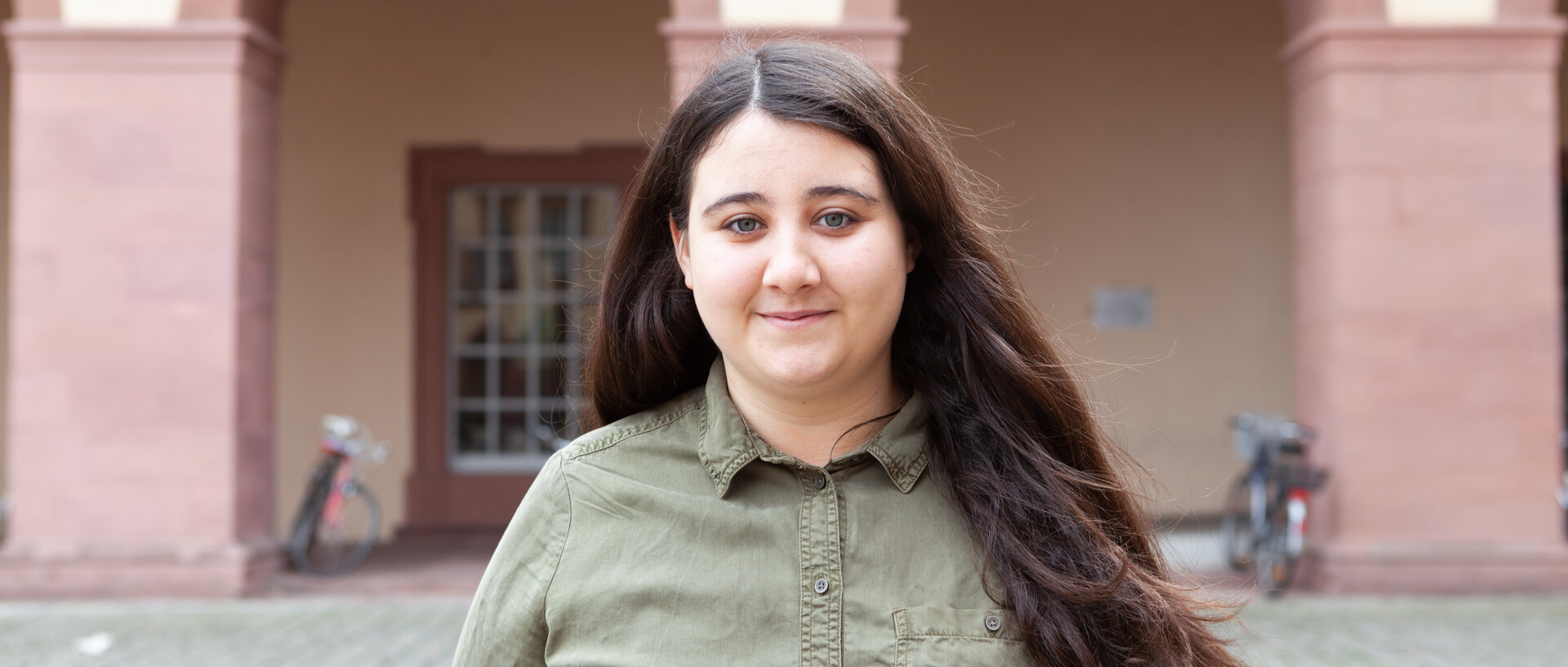“There is no better place to pursue a degree in German Studies than Germany”
Chrysoula is from a small Greek island called Gavdos, which is the southernmost point of Europe. She came to Germany to obtain a university degree when she was 18 years old. Right now, she is in her second semester of the bachelor’s program in German Studies at the University of Mannheim. In her myUniMA story, she tells us what role Goethe and Nietzsche played in her decision to study in Germany.
Have you always wanted to study in Germany?
I attended an excellent German-Greek school and learned German for many years. In fact, I like German very much and even translated a couple of poems and texts by Goethe and Nietzsche into Greek when I was still at school. During that time, I also read several works written by German philosophers and came across a quote by Goethe: “He who wants to understand poetry / Must go to the land of poetry / He who wants to understand the poet / Must go to the land of the poet”. In that instant, I knew that simply reading the works wasn’t enough for me, but that I wanted to explore the deeper meaning behind them. So I decided to come to Germany for my studies – after all there is no better place to pursue a degree in German Studies than Germany. Here, I can both learn the language and explore German culture and mentality with all my senses.
Why did you choose the University of Mannheim?
In addition to the University of Mannheim, I also applied to other German and Greek universities and was accepted by them. But I have never regretted my decision to come to Mannheim because it is so beautiful and diverse. It is an industrial city with a long and rich history – and on top it is also characterized by a unique mix of cultures. Since my arrival, I have met people from all over the world.
Was settling in easy for you – considering you already spoke the language?
It certainly helped, but I still struggled at the beginning. Not knowing anybody when I arrived was difficult for me. I needed to get used to a completely new environment and that was far from easy. It took some time until I felt at home here. But whenever I had a problem that I couldn’t solve on my own, I could turn to the International Office or the School of Humanities for help. Their staff was very supportive and I’m extremely grateful for their advice and assistance. It is a clear sign to me that people here care about international students, that they want to help, and I appreciate that very much.
In what way is life in Germany different from life in Greece?
It is probably different in many respects, but in my opinion there is no point in dwelling on that for too long. Now that I got an inside view of both countries I realize that there are a lot more similarities. Of course, I have inherited my home country’s values such as hospitality or the teachings of our great philosophers Plato and Aristotle. But while they are an integral part of my identity, I don’t want to be reduced to them. I’m always open to learning something new.
What do you do in your free time?
Currently, my studies take up all my time, but next semester I would like to become more involved and take part in the coaching program for international students. I know what it feels like to be new to Mannheim as an international student and what potential challenges await you at the beginning. That is why I feel responsible to help others who are in the same situation.
Do you already know what you want to do after you graduate?
I have not made any definite plans yet and am open to all possibilities, though one thing I know for sure: I will never stop learning and dedicating myself to the things I like doing. Learning knows no boundaries.
Text: Tina Ratajczyk / May 2019
